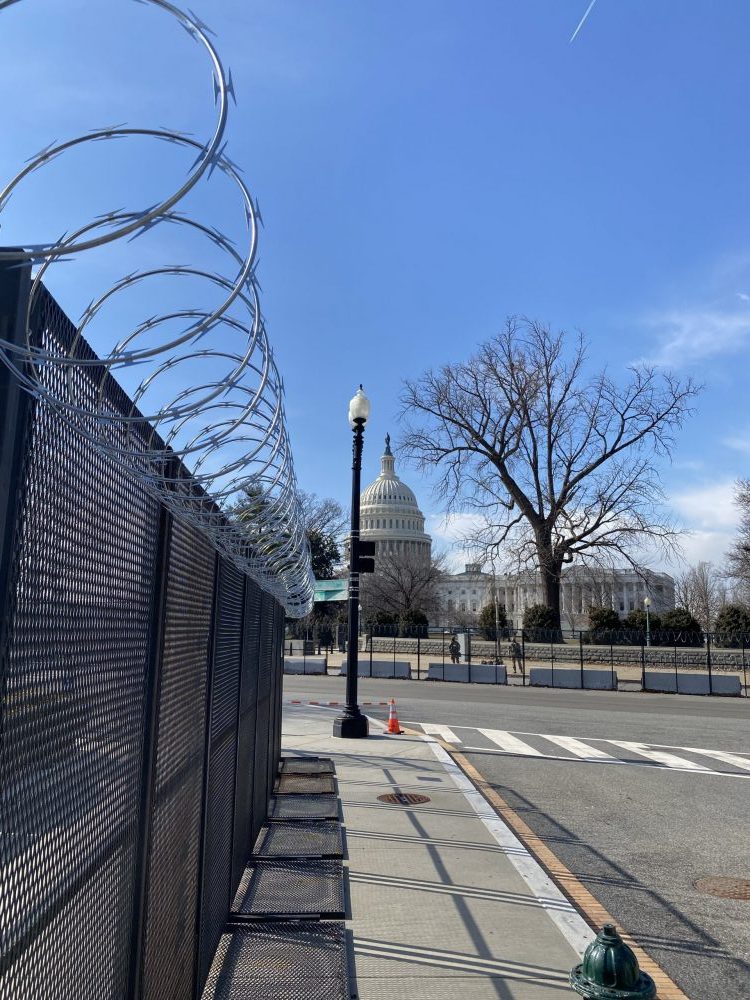The United States Capitol has been surrounded by fencing since just after the deadly Jan. 6 assault on the building, but Maryland Sen. Chris Van Hollen and other lawmakers want to make sure the barriers do not become permanent.
“We can achieve security here without building a wall,” Van Hollen, a Democrat, said at a press conference just outside the Capitol.
He and Republican Sen. Roy Blunt of Missouri, along with Democratic Del. Eleanor Holmes Norton of the District of Columbia, have introduced bills that would prohibit the construction of permanent fencing around the United States Capitol complex.
The outer perimeter fence that had surrounded the entire Capitol Complex was completely removed on Wednesday. A separate fence remains around the Capitol, but without the razor wire that topped it when it was first installed.
According to Blunt, he and Van Hollen drew up their bill in response to a similar bill sponsored by Norton in the House.
Blunt said permanent fencing would be bad for the general public, the city and international optics.
“People from all over our country and all over the world visit here,” Blunt said. “They’ve been able to visit here with a sense of openness and welcomeness that we want them to continue to have.”
The fences have created problems for the city, the lawmakers said. Traffic has been interrupted and redirected and the local neighborhood was cut off from the sprawling green spaces inside the fences.
The D.C. Council sent a letter on Feb. 23 to Senate Majority Leader Chuck Schumer, D-New York, and House Speaker Nancy Pelosi, D-California, requesting that they prevent any of the security fencing from becoming permanent due to the difficulties that the barriers imposed upon the city.
“Now that we have bipartisan, bicameral support,” Norton said, “it’s time to get rid of fences of the kind that were invented 10,000 years ago.”
Norton also emphasized that other technology besides fences can meet the security needs of the Capitol.
Blunt, Van Hollen and Norton also said security could be improved without fences with better police training, more funding and personnel for the U.S. Capitol Police and improved protocols for calling in the National Guard in emergencies.
Blunt and Van Hollen agreed that the Jan. 6 attack was a failure of intelligence, not a failure of infrastructure.
“I have thought for sometime that the police board itself doesn’t function well in easy circumstances and really isn’t designed to function at all in a crisis,” said Blunt.
Blunt urged the secretaries of defense and the Army to testify to Congress to explain why there was a 30-minute gap during the Capitol attack between when a decision was made to deploy troops and when they decided to inform anyone.
Blunt said lawmakers are not against putting up fences when it is necessary. The bill does not bar the use of short-term fencing for events.
“None of us are saying we don’t want a fence anywhere any time and when you anticipate you need it, you can put it up,” Blunt said.
The senators said they were confident the ban on permanent fencing will pass both houses of Congress. Van Hollen said he knew of no opposition.
“I don’t see any opposition on our side,” Norton added.

